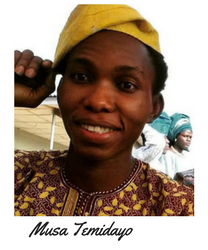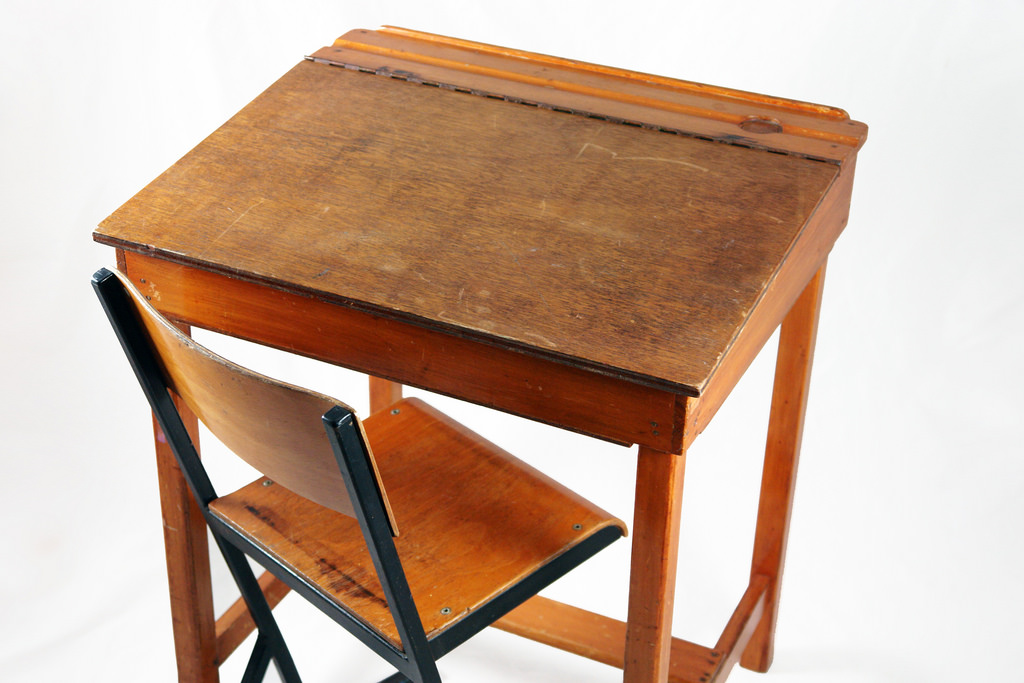“Quality challenge is facing primary education”
June 6 A programme to assess the quality of education could help schools as well as students, writes Musa Temidayo, 26, a Commonwealth Correspondent from Nigeria, who notes there are wide variations in the current system.
A programme to assess the quality of education could help schools as well as students, writes Musa Temidayo, 26, a Commonwealth Correspondent from Nigeria, who notes there are wide variations in the current system.
A number of situations have both directly and indirectly influenced the writing of this article, including my engagement with the Commonwealth Youth Programme, A World at School UK, and recently my involvement while on a five-year DFID-funded project as a researcher.
These programmes have exposed and increased my knowledge of societal and educational issues, which as a result has changed my attitude and thinking about our educational system in Nigeria and how we as a people should be grateful to the different international partners who are providing massive support in diverse ways to improve our system, especially in primary education.
My primary school was a medium fee-paying school. When I got to primary 5, I was curious as to why our primary 6 pupils had to go register with another school to write common entrance using that school name. I wondered why my primary school was not eligible, despite being the best private school in the community.
Parents in our compound always had arguments about how unregistered schools are better than public schools and far better at attaining learning outcomes than the so called “rich men” schools. Truly, to validate their arguments, my own outcomes were better than those of kids in public primary schools and far better than those at “big big” schools. This was in the late ’90s.
Many years later, some of their arguments still tend to be true. To put things right, a school’s being registered does not mean it is government approved, while being “approved” by government does not necessarily mean better performance or good learning output. Also, fees charged by schools are not a good indicator of their performance achievements.
The results of a census carried out by ESSPIN (Education Sector Support Programme in Nigeria) which was funded by UKAID, showed that there are 12,098 private schools in Lagos State. Talking about their ownership structure, 92 per cent of these schools are owned by individual or sole proprietor, five per cent are owned by faith-based institutions, two per cent by NGOs or corporations and one per cent by the community. Meanwhile, when it comes to approval status, only 26 per cent of these schools are approved by government, 42 per cent are still in the process of getting approved and 32 per cent remain unapproved.
Why are these schools not approved, you ask? In my own personal opinion, the requirements of the Lagos state government are so stringent that a large percentage of these schools, especially the ones serving the low income earning people, might not be able to meet the standards. And before you advise the government to close down these schools (something they have tried in past times) let’s be aware that if those same requirements for getting approved are tested on the government schools themselves, a good number will not be in existence.
Despite the fact that private schools sometimes compare poorly with government schools in terms of size, and solidity, they are far ahead of the public schools in terms of water and sanitation facilities and also far superior in terms of pupil-teacher ratio.
At these crossroads and in light of other issues surrounding primary education, the Lagos State Ministry of Education – with immense support from the UK aid-funded DEEPEN programme – designed an inclusive system called “Graded Assessment of Private Schools (GAPS)” which addresses the difficulties that many private schools, especially low-fee schools, have in meeting the requirements for government approval to operate. It also provides a uniform performance tool that can be used by the schools themselves, government and other stakeholders to improve school performance.
The results given after the assessment can be used for marketing purposes if desired. If adopted, an unapproved school with a “B” or even “A” grade can be sought after and compete comfortable with an approved school, therefore validating the notion that “approved” and “unapproved” labels are not fool-proof indications of quality.
Another advantage of the GAPS system is, if eventually adopted by the state it will assist the majority of private schools to improve their schools to the level needed. It will also provide “unapproved” schools with a form of formal government recognition to access finance and loans at financial institutions.
“In gardening we require fertilizer, good soil, water, sunshine and all those nutrient substances that when appropriately and qualitatively applied evoke seed germination, its healthy growth and its abundant flowering. The education of our children, as distinct from other training, requires no less and in fact, it demands a more judicious gardening.” J. E. Essien.
The future of GAPS (if adopted and implemented) on quality and education in Nigeria will increase the quality of education that children from low income homes get.
Note: GAPS recorded a successful pilot in Ikeja and Alimosho Local Government Areas . The Ministry implemented the first-phase roll-out of GAPS in Ojo in late 2013.
photo credit: H is for Home vintage child’s desk & chair via photopin (license)
……………………………………………………………………………………………………………
About me: I am an education and research enthusiast and essayist who studied International Relations at Obafemi Awolowo University.
Once upon a time, I was the Editor-in-Chief for DIPLOMAG.
I am an Ambassador for A world At School (UK), Director of Advocacy for Organization of African Youth for Development & Peace and also belongs to several bodies with a great passion for education advocacy, human rights and youth development.
I am also the fictional leader of #Taylor-swift’s fan in Nigeria.
You can reach me on email: musatemidayo@yahoo.com
…………………………………………………………………………………………………………………
Opinions expressed in this article are those of the author and do not necessarily represent the views of the Commonwealth Youth Programme. Articles are published in a spirit of dialogue, respect and understanding. If you disagree, why not submit a response?
To learn more about becoming a Commonwealth Correspondent please visit: http://www.yourcommonwealth.org/submit-articles/
…………………………………………………………………………………………………………………




